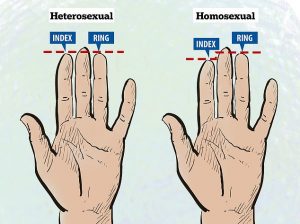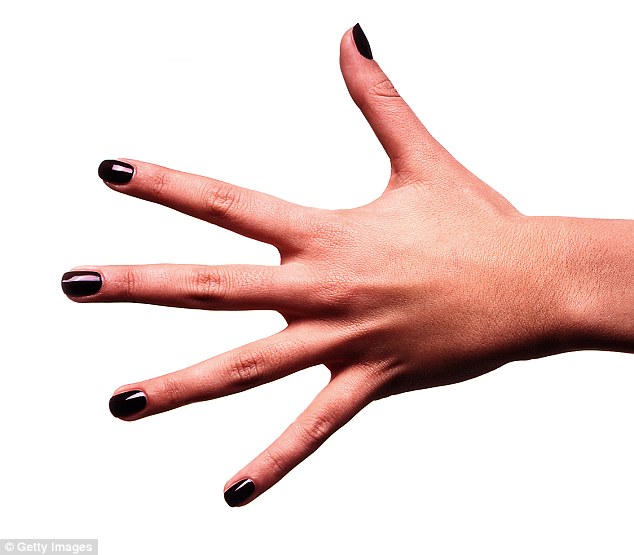The length of a person’s fingers could provide a clue to their sexuality, with women whose ring fingers are longer than their index digits more likely to be lesbian, a study has suggested.
Researchers at Essex University looked at sets of identical twins where one of the siblings was heterosexual.
They found that the homosexual twin tended to have a greater difference between the length of their index and ring finger, with the difference most pronounced among women.
Previous research has indicated that exposure to the male hormone testosterone in the womb could be linked to differences in finger length and also to sexuality.

Women’s index and ring fingers are typically of similar length while in men there is a greater difference.
Both men and women are exposed to the ‘male’ hormone testosterone in the womb.
The study observed that in 18 sets of female twins, the lesbian twin had more ‘male-typical’ hands than her straight sister.
In 14 sets of male twins the gay twin had slightly more ‘male-typical’ hands than their straight brother but the difference between the two was not viewed as significant.
A chart indicated that the index finger of non-straight women was typically around 90 to 100 per cent as long as the ring finger.
Dr Tuesday Watts, from the department of psychology, said: ‘Because identical twins, who share 100 per cent of their genes, can differ in their sexual orientations, factors other than genetics must account for the differences.
‘Research suggests that our sexuality is determined in the womb and is dependent on the amount of male hormone we are exposed to or the way our individual bodies react to that hormone, with those exposed to higher levels of testosterone being more likely to be bisexual or homosexual.
‘Because of the link between hormone levels and difference in finger lengths, looking at someone’s hands could provide a clue to their sexuality.’
The findings are published in the journal Archives of Sexual Behaviour.
Earlier this year scientists found there could be a link between the length of a child’s fingers and the pitch of their voice.
A baby is more likely to grow to have a squeaky voice if the index finger on their right hands is longer than the ring finger, the research suggested.
Similarly, scientists said the connection is probably the result of a lack of testosterone in the womb.
Testosterone is known to be key to early body growth and plays an important role in how vocal pitch develops during puberty.

